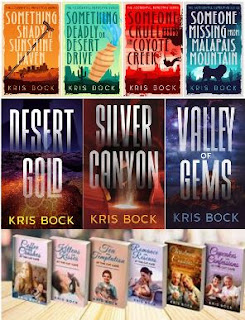
Writer and Reader Comfort
This Adjustable Laptop Table inspired the whole conversation. The adjustable legs mean you can use it over your lap on the couch or you can turn a table into a standing desk. I ordered one immediately after coming home. (This one isn't currently available, but you can find a lot of other options if you prefer certain materials or styles, but note that some of them have a flat base rather than legs that can straddle a lap. Also, the width of the legs might not work for every lap size.)
Next up, I got this Pillow Foam Stand Holder as a gift a couple of years ago and I love it. My mom loves hers too. It holds an e-reader, iPad or tablet at a nice angle for reading, so you don’t have to hold it in your hands and you don’t strain your neck as much as you would with it down in your lap. I keep mine on a pile of pillows on the couch to keep it at eye height. I like this royal blue color, but scroll down and you’ll see lots of options for different styles and designs, including some fun animal heads “for children” (but I won’t judge if you need a sloth, unicorn, or monster book holder for yourself)!

And if you do want to try an e-reader, I have the Amazon Fire HD 10 inch tablet. The battery lasts for many hours if it’s on airplane mode, I can take dozens of books with me when I travel, and I can adjust the font size to make it easier on my aging eyes. In addition, it’s often cheaper to buy e-books than print books, and you can get books from the library and have them delivered to your Kindle – no need to stop in to pick up your holds!
Finally, this Electric Kettle might not seem like a “writing tool” but writers and readers who like a nice cup of tea will appreciate the speed and temperature accuracy of an electric kettle. They’re so inexpensive and really handy. This one comes in fun colors, but there are others that give you different temperature options, which might be best if you drink green, white, and oolong teas that should brew at different temperatures.
Kris Bock writes novels of mystery, suspense, and romance. In the Accidental Detective series, a witty journalist solves mysteries in Arizona and tackles the challenges of turning fifty. Kris’s Furrever Friends Sweet Romance series features the employees and customers at a cat café. In the Accidental Billionaire Cowboys series, a Texas ranching family wins a fortune in the lottery, which causes as many problems as it solves. Sign up for the Kris Bock Mystery and Romance newsletter and get a free Accidental Detective short story and bonus material, a free 30-page sweet romance set in the world of the Furrever Friends cat café, and a printable copy of the recipes mentioned in the cat café novels.
Kris also writes a series with her brother, scriptwriter Douglas J Eboch, who wrote the original screenplay for the movie Sweet Home Alabama. The Felony Melanie series follows the crazy antics of Melanie, Jake, and their friends a decade before the events of the movie. Sign up for the romantic comedy newsletter to get a short story preview, or find the books at all E-book retailers.
Kris has over 100 books for children published under the names Chris Eboch and M. M. Eboch. Her novels for ages nine and up include The Eyes of Pharaoh, a mystery in ancient Egypt; The Well of Sacrifice, a Mayan adventure used in many schools; and The Genie’s Gift, a middle eastern fantasy. Jesse Owens: Young Record Breaker and Milton Hershey: Young Chocolatier are inspiring biographies focused on them as children and young men. Learn more here.









.jpg)
.jpg)



.jpg)

.jpg)
.jpg)
.jpg)



.jpg)



.jpg)









